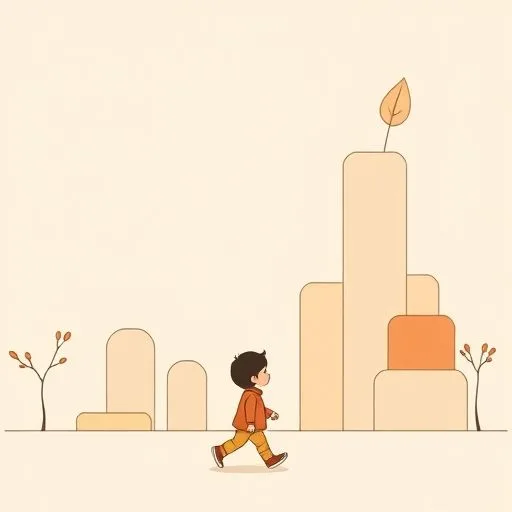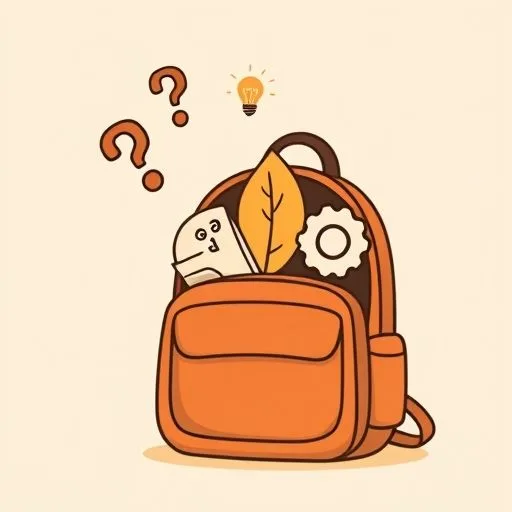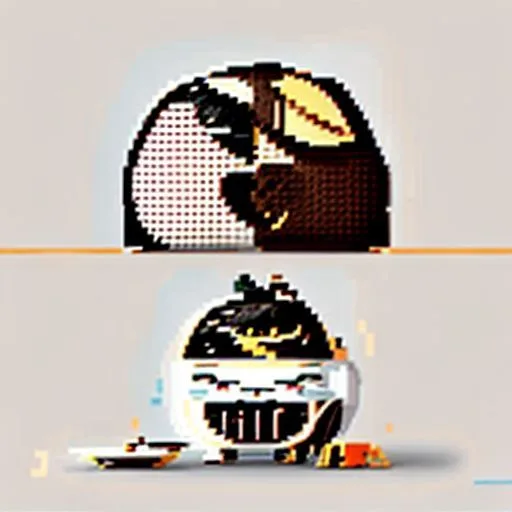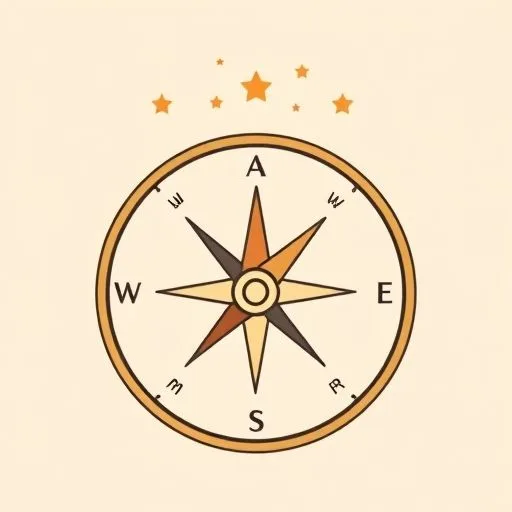
What truly prepares kids for our AI-powered future?
I still remember the look on my daughter’s face when she first watched our phone label her doll as ‘toy’—her eyes sparkled with curiosity, and I knew then we were on an adventure together. Watching our children grow in today’s world is extraordinary. As I walk my daughter to school, I marvel at the AI-filled future she’ll inherit—a world evolving at breakneck speed. How do we prepare our little ones for a future we can barely imagine?
What should we pack in our children’s digital backpacks?

Do you ever feel like we’re trying to pack our children’s backpacks with knowledge that might become obsolete before they even reach adulthood? I know I do. You know, I came across a stat that even banks are trying to get every team member tinkering with AI. If the grown-ups see the value in play and experimentation, why not our kids?
I totally get that—I’ve felt that worry, too! We often think we need to enroll our kids in every specialized class, hagwon, and program to give them an edge, right? But what if the real advantage lies in fostering adaptability and curiosity? When our children learn to ask questions, explore answers, and embrace new experiences with open hearts and minds, they develop a resilience that no single skill can match. That’s the digital backpack I want my daughter to carry—one filled with wonder, not just facts. For raising curious kids, this adaptability matters more than any specialized knowledge.
How can we move from memorization to fostering wonder?

Ah, the familiar rhythm of Korean educational life—the pursuit of perfect scores, the memorization of facts, the pressure to excel in specific subjects. I grew up in this environment, and now as a parent, I see how easily we can slip into the same patterns with our children. But what if we’re measuring the wrong things?
In a world where 72% of bank executives admit that “the pace of change in the AI environment is moving faster than their organization’s ability to train and prepare their workforce,” we have to ask: what skills will truly serve our children long-term? The research suggests a shift from specialized knowledge to “potential-first hiring” and “fostering a culture where curiosity and innovation are rewarded.” Sound familiar? It’s what we hope for our kids too!
That’s why I’m increasingly drawn to the moments when my daughter isn’t studying but exploring—when she’s mixing colors to see what happens, building structures that defy gravity, or asking endless questions about how things work. These unscripted moments of discovery might just be the most valuable preparation for her future. After all, in a world where specific technologies come and go, the ability to learn, adapt, and stay curious will always be in demand. Fostering curiosity in children requires us to value these moments of wonder over rote learning.
How can families explore AI together?

The other day, while preparing weekend pancakes (my daughter’s favorite request!), we had one of those magical moments of discovery. She asked me why the recipe always said “mix until just combined” rather than longer. Instead of just answering, we did a little experiment—mixing different batches for different times and observing the results. As we watched the batter change texture, she made a connection to something she’d seen about AI learning from patterns.
On our 100-m walk home from school, we stop by at our corner café for a misugaru latte—my daughter’s new favorite blend of Korean grain drink and Canadian froth! It’s moments like these that technology enhances our lives without taking over. We don’t need fancy gadgets or expensive programs; we just need to approach technology as another avenue for exploration. Sometimes we look at pictures from our travels and she’ll ask how the phone “knows” that’s a cat or a mountain. Other times, we’ll use simple apps to create stories together, where she provides the imagination and the technology helps bring it to life.
The key balance, I’m finding, is to let technology enhance our real-world experiences, not replace them, right? After all, the most profound learning happens when we’re laughing together in the kitchen, observing the world around us, and making connections between different ideas. Children and AI can explore together in simple, everyday moments like pancake-making.
What is the benefit of co-learning with our children?

Here’s something that brings me tremendous comfort: we don’t need to have all the answers. In fact, our children might learn more when we admit we don’t know something and explore it together. This “co-learning” approach—where “continuous collaboration between people and AI, with feedback, iterative learning and adaptation happening in real time”—is exactly what the most forward-thinking banks are embracing with their workforce.
I remember when my daughter first started asking about computers—how they “think” and “know” things. Rather than giving her simplified explanations, I’d say, “That’s a great question! Let’s find out together.” We’d look up simple explanations, try basic coding games designed for kids, or even take things apart (with supervision!) to see how they work. These shared discoveries have been some of our most bonding moments.
There’s something beautiful about approaching technology not as something to fear or control, but as something to understand alongside our children. When they see us embracing curiosity rather than pretending to have all the answers, they learn that learning itself is a lifelong adventure—one that doesn’t require perfection, just persistence and wonder. Parenting in the digital age means embracing this co-learning journey with our children.
How can we embrace parenting as an adventure in the AI age?

As I watch my daughter grow, I’m reminded that the most precious gift we can give our children isn’t knowledge of specific technologies or mastery of certain skills. It’s the ability to stay curious, to adapt with grace, and to approach the unknown with hearts full of wonder.
In a world that’s changing faster than any previous generation has experienced, these qualities will be our children’s greatest assets.
So let’s take a deep breath together, fellow parents. Let’s resist the pressure to create little AI experts and instead nurture little explorers. Let’s celebrate the questions as much as the answers, and trust that the curiosity we foster today will prepare our children for all the tomorrows they’ll embrace with confidence and joy.
After all, isn’t that what parenting has always been about—raising humans who can thrive in whatever world they inherit? That same sparkle in her eyes when she discovered something new—that’s the future I want for my daughter, and for all our children. Now, that’s an adventure worth taking! Preparing kids for AI future means nurturing their innate curiosity above all else.
Source: Beyond Hiring: How Banks Can Build An AI-Ready Workforce, Forbes, 2025/09/24 12:03:36.
